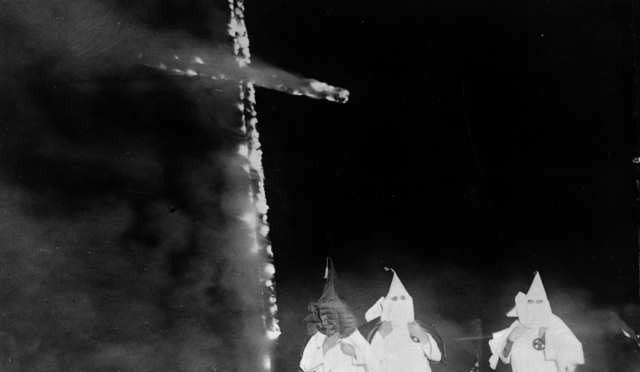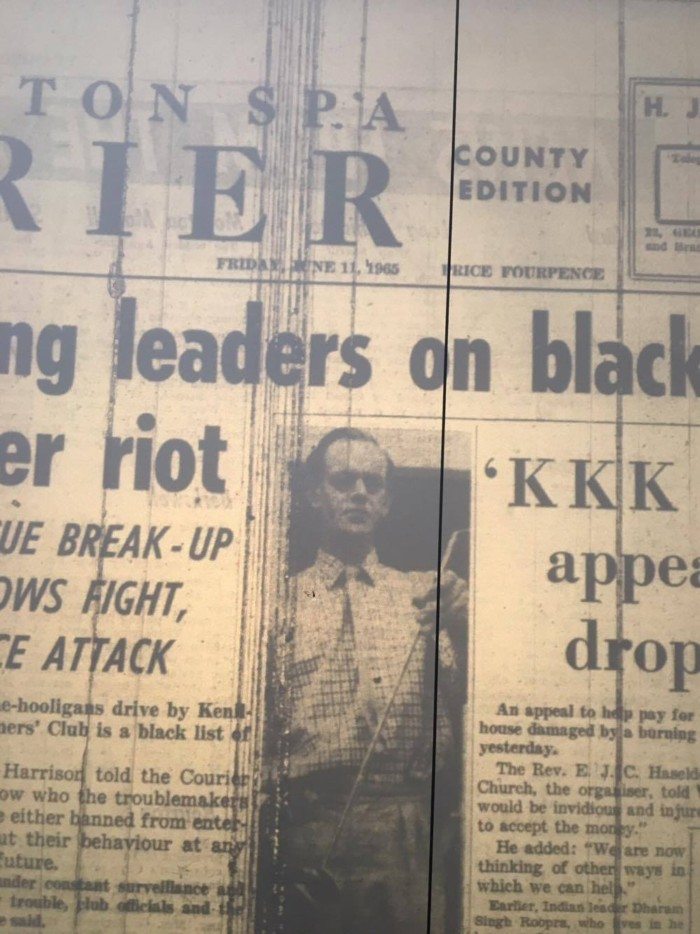Tracing the past: racist violence in 1960’s Leamington
1965 was the year the University of Warwick came into being, and the year that the Race Relations Act was passed in the United Kingdom to outlaw the discrimination of any person on the “grounds of colour, race, or ethnic or national origins” in public places. From the day the university first opened its doors to undergraduate students in October 1965, ‘Red Warwick’ with its Students’ Union and affiliates has been a hot bed of political activity and protest, notably along with Leamington’s Anti-Racist Anti-Facist Committee to counter burgeoning movements of discrimination in the surrounding areas of Birmingham and Leamington Spa.
“Unidentified assailants wedged a six-foot wooden cross into the front door of a local Indian community leader Dharam Singh Roopra, and set it alight”
Just months before the university accepted its first students, the local town of Leamington Spa experienced a radical, racially charged incident that sparked social discord. Unidentified assailants wedged a six-foot wooden cross into the front door of local Indian community leader Dharam Singh Roopra, and set it alight just after midnight on Sunday 6 June 1965. Assailants reportedly also threw a brick through the living room window of Dharam Singh’s home on Avenue Road.
Widely associated with white supremacist movement, the Ku Klux Klan, and based on acts they committed across the US in the twentieth century, the gesture is usually intended to rally Klan members to action. The first instance of a cross being set alight in the US was at the revival of the Klan in 1915 atop Georgia’s Stone Mountain. Crosses were also burned during the Tallahassee bus boycott of 1956 in efforts to intimidate the African-American community during their protest against segregated seating on public transport.
The crime in Leamington Spa marked the first of a series of incidents of KKK affiliation in the West Midlands. One arrest was made on suspicion of involvement in the attack; a 40-year-old ex-bus driver with prior connections to the British Nazi movement, Robert Relf, was interviewed by police minutes after the attack and consequently arrested.
“…not all the locals were as quick to condemn the ethnic minorities – a local appeal began to help pay for repairs to Dharam Singh’s house but it was later dropped…”
Relf, who had been to a meeting of Birmingham’s Ku Klux Klan division just the day before the attack, admitted to having “brought up the question of Dharam Singh’s activities in Leamington” at this event. At the Birmingham meeting on June 5, members were addressed by the chief of the organisation in the US, known as the Grand Wizard. Relf was reported as saying to the Leamington Courier that he would use the assembly to decide whether or not to join the movement, and to “discuss the possibilities of forming a [Klu Klux Klan] branch in Leamington”.
While it’s safe to say that race relations were in a particularly fragile state during Relf’s lifetime, not all the locals were as quick to condemn the ethnic minorities: a local appeal began to help pay for repairs to Dharam Singh’s house but was later dropped, despite Leamington’s mayor stating in reports in the Leamington Courier that he would have supported the bid. Mayor Alan Dorrey himself condemned the attack and others of its kind, asking for everything that could be done to end “racial acts of madness” before they led to bloodshed, according to the same Courier reports.
Other Leamington locals responded to the incident by writing letters to the Editor of Leamington’s weekly Courier condemning the attack, in albeit politically incorrect terms: “Perhaps the Ku Klux Klan expect a colour-bar when they get to the gates of heaven (if ever they do!). I hope St Peter will say to them: “You go back, your face is white but your soul is black,” read one letter.
Robert Relf furthered his notoriety in 1976 after advertising the sale of his house as viewing to “positively no coloureds”. He refused to remove the sign completely, but later amended it to read “For Sale – to an English family only”. This act sparked uproar in the Midlands, with some demonstrating for Relf’s release from his consequent arrest under the Race Relations Act, while anti-fascist protestors argued the converse.
Following an assembly of arrests which he met with personal hunger strikes, Relf seemed to have disappeared from public controversy until 1991 whereby he began expressing political dissatisfaction with the Conservatives for their endorsement of John Taylor, a black general election candidate.
“…as we commemorate Black History Month this year, it is imperative that we do not assume such racial issues do not still hold contemporary relevance in what we believe to be more tolerant society.”
Relf persisted to act as an unwavering voice of hatred in the Midlands until his recent death in 2014. Relf represents the damage that even a single voice of hatred can hold. With a multitude of racial hate acts still occurring across the globe, and even on the Warwick campus back in April of this year, we must take from this excerpt of history, the longevity and difficulty with which it takes a community to heal in the face of prejudice counter-cultures.

Warwick student Faramade Ifaturoti was the victim of a racist attack earlier this year. Image: @Faramade_ / Twitter
Therefore, as we commemorate Black History Month this year, it is imperative that we do not assume such racial issues do not still hold contemporary relevance in what we believe to be more tolerant society. We must not adopt an acute apathy towards socio-political histories by rendering these issues as depersonalised events from some distant American history. When the United Kingdom, and even our very own Leamington Spa, has experienced such direct contact with racial hate crimes and KKK factions, it is safe to say that they were as much a shameful truth of the Midlands’ history as they were America’s.


Comments